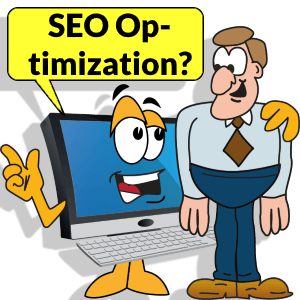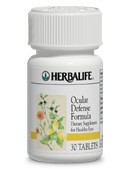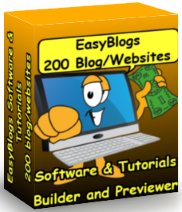Keyword and Description Meta Tags Tutorial

The following article was originally written in 2010. Most of the concepts are still accurate but the metrics have changed. And what worked then isn't enough for todays search engine results optimization. And while Best Website Tools has moved to current optimization techniques we rely on other more current SEO experts to guide us. One such company we found is Ignite Visibility. BWT recommends you get SEO advice from their article "TECHNICAL SEO: COMMON TECHNICAL SEO ISSUES AND PROBLEMS"
Of course you can still get the basics of meta tag optimization from our original article. Continue reading...
--------------Original article-----------------
Keyword and description meta tags optimization tutorial for better search engine rankings. Have you ever wondered why some web pages get higher search engine rankings than others? Of course you have, if you are a web developer.You may have read or heard of a hundred ways to improve your page ranking and tried them all. Only to see dismal results and wonder what the heck went wrong.
Been there and done that. So I thought I would let you in on the secrets I use to get my pages to rank high in the search engines.
Once you read these tricks you might think that is so obvious I should have thought of it.
10 rules to search engine optimize a page for keywords and description meta tags.
1. First let's assume that you already know what the page is about and have already created it. This is not a tutorial on how to write web pages. Rather guidelines for search engine optimization using your keywords and description meta tags.
Depending on the type of page you are creating determines how many keywords you should use in your meta tags. For instance a sales letter is typically 2000 10,000 or more words. In that type of page you need to describe all the advantages of your product and why it is the right solution.
You will want to get testimonials and place them in appropiate places. You may even want to tell a story relating to how well the product has performed. Don't over do the page or you will lose your prospect to boredom.
The product page (different from the sales letter) should be between 500 and 750 words. All you are trying to do here is sell a product. Visitors that make it to these pages probably already know what they are looking for and are only looking for specific information. Your job is to convince them that your product is the right one. Beyond that word count there is too much opportunity for your visitors to disagree with your pitch and move on.
The article page should be at least 1000 words and not more than 5000 15,000 words. Okay some might say that 5000 is too long and others have said that isn't 1000 words aren't enough to describe what they have to say. Too long - some say that 500 words is good for an article page. So lets look at this: a person who can read 10 words a second will be through your page in 50 seconds. Not enough time for them to soak up your message. A person reading 3 words a second will take about 2-1/2 minutes. Plenty of time for your message to sink in.

Also having a lot of pages on just one subject can be canabolizing your SEO efforts. Google now looks at groups of pages about a subject, instead of just yours, to decide what is best and what is not as informative. That can push your pages down the serps due to incomplete EAT.
The average reader can read somewhere around 6 words per second. Which would take them 83 seconds to read your 500 word article. Barely enough time to get your visitors comfortable. At 6 words a second your reader needs around 3 minutes to read a 1000 word article. This plenty of time for the reader to make a decision to click on your most wanted response.
At over 2000 words the average reader will need 5-1/2 minutes to get through it. This is stretching the limit of time most visitors will spend reading one web page. At 5000 words the average reader takes over 13 minutes to read your page. This is well past the amount of time a visitor will need to decide to click on your most wanted response.
If your article is really good most people will read all the way through it. If not they are off to the next website in a flash. If you have more than 2000 words you may want to consider breaking the article into 2 pages.

Better copywriting is the best practise these days. That doesn't just mean better words it also means better page layout. .Adding white space, images videos and other breakups improves readability and search engine results
Okay, back to rule #1 use the right amount of keywords in your meta tags for a particular type of page. Not too many and not too few.

Here is an example: Ocular-Defense-Formula.html (Pr2 and #2 in Google). The first keyword for this page is "Ocular Defense Formula." This seemingly obsure product gets 33,000+ search engine results in Google alone. So it is not that obscure after all. And makes for a good example.
3. Use only 5 keywords in your meta keywords tag. More than that and the search engines might think you are keyword spamming and won't list your page. The search engines rank your keywords in the order that they appear. This makes the first one the primary keyword and the second one a secondary keyword and so on. You should line your keywords up in the order of relevance to the page. Here is the meta keyword tag I used in this example.
"Ocular Defense Formula, eye health, vision, Lutein, Bilberry"
4. Use all of your keywords in your meta tags description, with the primary keyword as close to the front as possible. Definitely within the first 5 words of your description. The search engines do read your description, but can find and match them with your keyword list. So try to use them all but don't repeat them if at all possible. Again if your meta description repeats your keywords too often the search engines might think you are keyword spamming and not list your page, so don't do it.
5. Meta description should be between 60 and 100 120 characters. It is important to get a solid description of your page. Less that 30 characters and the search engine may not find it relevant enough to list. More than 60 characters and the search engines will truncate it. Which looks unprofessional on your part.
Truncated meta descriptions may leave searchers with the impression that your content will be too wordy and full of fluff. Too short a description and your visitors may think there is not enough information on your page and move on to the next result. So try to get your description just right, not too long and not too short. Here is the meta tags description for ODF.

That means a weak or missing meta description isn't as important any more. Still you should write a meta description for every page. This does help searchers get an idea what your page is about.
"Ocular Defense Formula with Lutein, Bilberry and herbs to support eye health and protect vision."
6. Line up your meta keywords up too resemble a sentence. Although search engines don't read your keywords as a sentence verbatim, it should reflect well what your page is all about. See the meta keyword tag above.
7. Proof read your content twice. You should always proof read your work before you post for a lot of good reasons like spelling, grammar, placement and paragraph distribution. Once your page looks great proof read it again with your focus on keyword placement and repitition. You want your keywords placed in your content sparingly.
What? you say. Again over use of your keywords might result in the search engines thinking you are keyword spamming. That isn't to say you shouldn't have too few. My rule of thumb is 3 uses of a keyword for every 300 words. This lets the search engines know that there is a lot of supporting content for the keyword.
As you are proof reading you may discover that you have a much better keyword for your meta tag than what you originally thought. For instance in ODF I discovered that I had left out the keyword "vision". After proof reading my page I added that keyword to my list and used it a couple more times in the page.
8. Put your meta description all on one line in your html code. This will ensure that the search engines reads it all. I have noticed that some search engine results leave off the second line of a description. That may leave out some of your meta keywords if that happens.
9. Never use more than 3 words for your primary keyword (and file name). People rarely search for a keyword phrase over 3 words long. Too many words in a keyword phrase and the search engines may not find enough relevancy to list your page in the results. Two words in a keyword phrase (and file name) is ideal.
For Ocular Defense Formula file name/primary keyword, I thought 2 words weren't enough to describe the page. "Ocular Defense" would have been too vague and misleading. I could have named the page something else and optimized for those keywords, but, ODF is a product page and optimizing for something like "Eye Health" would have been misleading and probably not get listed high in the search engines.

You can answer questions like "how to, where to get, what is, who is." Searchers (especially voice) want specific information to learn about, purchase or locate something. Your meta tags should answer those question.
10. Use your primary keyword in the first and last paragraph of your page. The search engines will give more relevancy to your page if they find your keywords at the beginning and the end of your page. Also your primary keyword should appear in the first 90 characters of your content.
Descriptions and Keyword Meta Tags
Bonus tip - Use your primary keyword as a text link in your page only once. Not twice but definitely once. If you don't want your visitors to leave your page make that link an "add to favorites" bookmark. On a product page this works great because you don't want to give your visitors the opportunity to go else where.In summary use these tips to increase your search engine rankings. Optimizing your keywords and description meta tags should improve the relevancy of your page and boost your search engine rankings. Notice how I used my primary keyword and description meta tags in this last paragraph.
EasyBlogs Software And Tutorial
 Step by step instructions to create up to 100 blog/websites. Includes 326 page ebook.
Step by step instructions to create up to 100 blog/websites. Includes 326 page ebook.
AKA SBI RSS Tutorial
Only
Customer Service - No matter what time of day I'm here for you. Unlike other design firms I work all the time, days, nights, weekends and holidays. I'm just a phone call or email away. Get free advice for 30 days forever. Learn more...
Home : Website Design : meta tags
61 W. Annabelle Ave. Hazel Park,
MI. 48030-1103, U.S.A.
telephone: (248)546-0374
email: support@best-website-tools.com
© Copyright 2007-2025 All rights Reserved.
Sun: closed
Mon-Fri: 9:00AM to 6:00PM
Sat: 9AM-12:00PM
Closed Holidays



